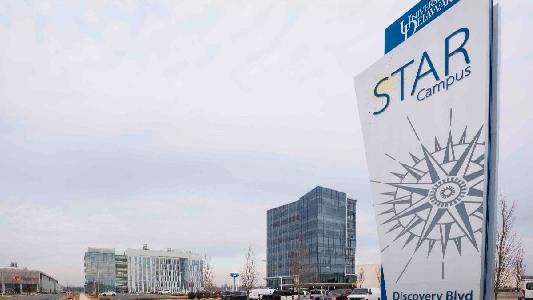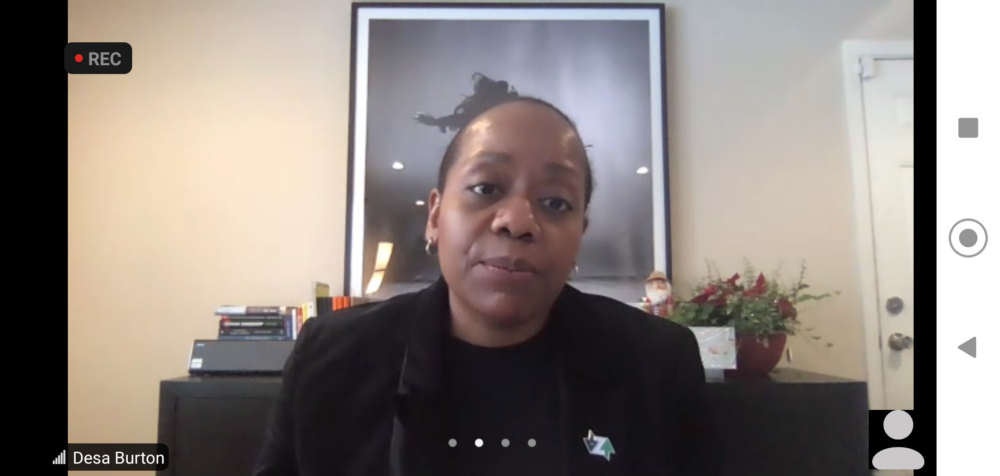Delaware’s Pathways program aims to make every public school student in the state ready to either continue their education or go directly into the workforce after graduation. It’s done this by bringing state-of-the-art engineering labs, audio and visual studios, working farms and commercial kitchens to public high schools up and down the state over the last decade. Computer science is one of the Pathways at some schools, but intensive industry-standard computer programming and web development training has been, for the most part, lacking.
So, Zip Code Wilmington (ZCW) and Wilmington-based digital wireless tech company InterDigital have partnered with the Delaware Department of Education (DDOE) to launch the pilot of B1ue N0te, a youth training initiative program that is being added to the computer science Pathway in three high schools this year: William Penn (New Castle County), Caesar Rodney (Kent County), and Indian River (Sussex County).
B1ue N0te — named after Herbie Hancock’s record label, with the “1” and “0” representing binary code — was created by ZCW alum Tyrell Hoxter, who developed it over two years with the help of support from The Longwood Foundation and other philanthropic contributions, as well as the DDOE.
“Tyrell is an alum of Zip Code cohort 2.1,” or the first cohort of the bootcamp’s second year, said Desa Burton, executive director of ZCW. “He came in with a lot of hair and a video, where he talks about how he wants to learn how to code so that he can teach kids, and here he is now.”
When it came time to roll the program out, ZCW and Luke Rhine, DDOE director of career in tech education and stem initiatives, planned to launch it in just one school. Burton, who previously worked at InterDigital, recalled a conversation she’d had with its EVP and chief public policy officer, Rob Stien, where he had shared that the company was looking for a way to help STEM students who were disproportionately affected by the COVID-19 pandemic.
“InterDigital has been very supportive of Zip Code, supporting scholarships for our military service members who go through our program,” Burton said of the tech company that employs around 300 engineers. “[Stien] was asking me whether there was anything InterDigital could do to support getting students this training while we were already working with Luke and rolling this out in one school. But with their support, we were able to roll it out statewide.”
For Stien, the program seemed almost too good to be true.
“We’re a Delaware-based company, we saw the issues with kids in K-12,” he said. “Our CEO, Bill Merritt, wanted to an opportunity to support the communities in which we engage as a company. We probably had 10 to 15 different programs that we were mulling over when we learned about the B1ue N0te program. We decided this was the best way to serve the community.”
With InterDigital’s mission to conduct advanced wireless and video research, STEM is at its core, Stien said. “Our pipeline is people. We don’t have a product, we are a pure research company that does foundational research. We need the pipeline, and the best way to do it is to get these students engaged at early ages.”
Since the fall, Hoxter has been working with students virtually.
“In the beginning of the year, we took them from not knowing anything about JavaScript to where students have created a number guessing game” with the programming language, he said.
“At one of the schools, students built their own websites, did all the code,” Burton added. “It’s quite remarkable. It took them several weeks to be able to do that, but they did it themselves. These are juniors, so they’ll be moving toward potentially doing more in their senior year, [with an] exposure to the possibilities that computer science has for them, whether they choose it as a career or they choose it as a launching point into technology.”
As the program grows into schools up and down the state, additional teachers will be needed.
“We have three educators that are working with Tyrell to implement instruction on a daily basis,” Rhine said. “We’re anticipating adding another three to four teachers in the spring semester of this academic year.”
The hope is that the program only continues to grow.
“There’s one key takeaway from our perspective: This isn’t a one-and-done situation,” said Stien. “This is long-term. This is building a program that we hope not just grows, but is sustainable, so that as we look forward we hope there are others that engage in these public-private partnerships.
“Who knows where it may lead, but let’s get kids interested in this type of education.”
P.S. In other recent ZCW news: The nonprofit just won the 2020 Technical.ly Awards’ Invention of the Year for its TECHPRENEUR program.
Join the conversation!
Find news, events, jobs and people who share your interests on Technical.ly's open community Slack

Delaware daily roundup: Greentech terms to know post-Earth Day; generative AI's energy costs; anti-AI deepfake legislation

Delaware daily roundup: Delmarva Power vendor stats; DelDOT's $15M federal grant; 50 best companies to work for

UD's STAR Campus gears up for a major addition in biopharma


